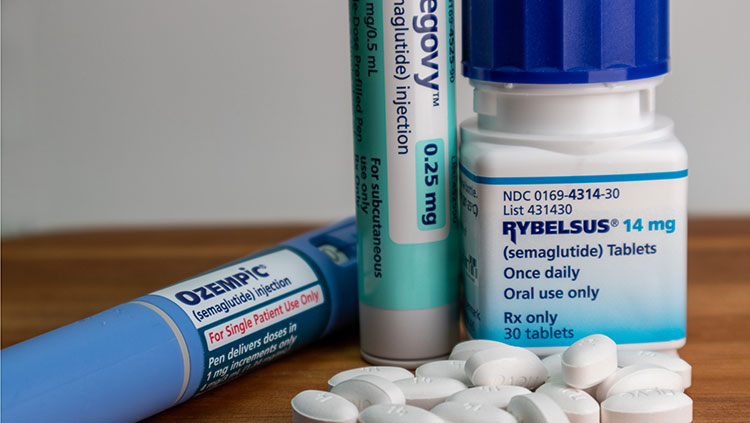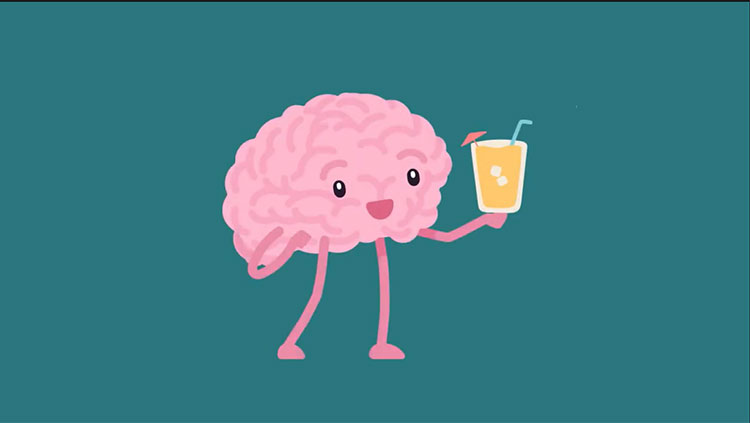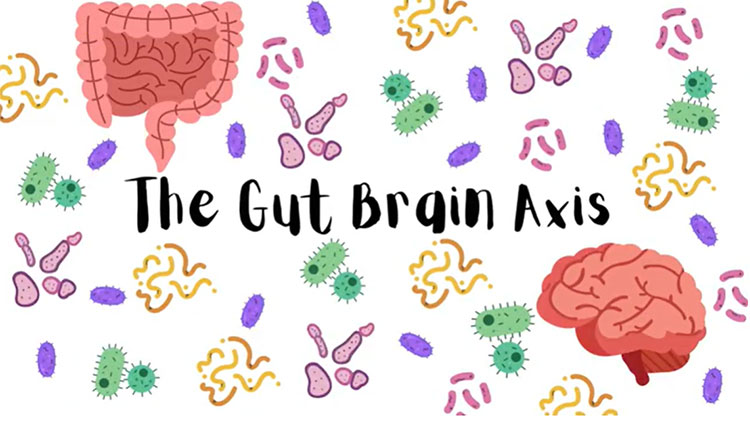The connection between your brain and your gut is stronger than you might think. The walls of the digestive tract are lined with a specialized neuronal network tasked with regulating digestion and communicating with the brain. That dialogue runs both ways thanks to the vagus nerve, which helps connect these two parts of the body.
Brain and gut health are inextricably tied. Microorganisms and neurotransmitters produced in the gut can influence mood, cognitive function, the immune system, and inflammation in the brain. Researchers are examining how therapeutics could take advantage of the gut-brain axis to offer personalized mental health treatments based on the unique composition of patients’ microbiomes.
This is a video from the 2024 Brain Awareness Video Contest.
Created by Yekyeong Lee.
CONTENT PROVIDED BY
BrainFacts/SfN
Transcript
Imagine the scent of freshly baked bread, the sizzle of bacon, or the taste of creamy pasta. Can you sense your stomach starting to rumble?
That's your brain talking to your gut, and this direct connection between the brain and your digestive system is more powerful than you might think.
Your gut is often referred to as your “second brain.” This is due to the enteric nervous system, or ENS, which is the intricate nervous system of your gut.
It lines the walls of your digestive tract and does much more than just manage digestion by releasing enzymes and controlling blood flow. This complex network of neurons constantly communicates with your brain, creating a remarkable dialogue between your two brains.
This communication between the gut and the brain is possible through the vagus nerve, a bidirectional information highway between the gut and the brain that transmits messages in a matter of milliseconds.
It's a two-way street: A troubled intestine can signal distress to the brain, just as a troubled brain can influence gut function.
Contrary to earlier beliefs, recent studies suggest that the relationship between mental health and gastrointestinal issues is not one-sided.
While anxiety and depression were long thought to exacerbate bowel problems, emerging evidence indicates that irritation in the gastrointestinal system can send signals to the central nervous system, triggering changes in mood.
Another key player in this gut-brain communication is the gut microbiome, a diverse community of trillions of bacteria, viruses, fungi, and other microorganisms residing in the gastrointestinal tract.
The microbiome produces a variety of bioactive compounds that can influence brain function.
For instance, certain bacteria in the gut produce short-chain fatty acids (SCFAs), and short-chain fatty acids have been shown to possess anti-inflammatory properties and can cross the blood-brain barrier to influence brain function.
The blood-brain barrier (BBB) is a selective permeability barrier that protects the brain from potentially harmful substances in the blood, while allowing essential nutrients to pass through.
Short-chain fatty acids like butyrate play a critical role in maintaining the integrity of the BBB. Butyrate has been shown to enhance the expression of tight junction proteins that form the barrier, thereby preventing unwanted molecules from entering the brain.
By strengthening the BBB, these compounds help protect the brain from toxins and pathogens, which is crucial for maintaining overall brain health and preventing neurological disorders.
In addition, gut bacteria impact mood regulation by producing neurotransmitters like gamma-aminobutyric acid (GABA) and tryptophan.
GABA, a primary inhibitory neurotransmitter, reduces neuronal excitability, promoting calmness. This occurs when GABA binds to receptors on neurons, allowing negatively charged chloride ions to enter, stabilizing membrane potential, and preventing overstimulation.
Similarly, tryptophan, a precursor for serotonin — the neurotransmitter associated with happiness and well-being — is produced by certain gut bacteria. By supporting the production of these crucial neurotransmitters, a healthy gut microbiome can positively influence mood and cognitive function.
The gut microbiome can also modulate the immune system, which in turn affects brain health.
Microbial imbalance, or dysbiosis, can lead to the production of pro-inflammatory cytokines, which can enter the brain and contribute to neuroinflammation. And this chronic inflammation in the brain is a significant factor in many neurological and psychiatric conditions, including depression, Alzheimer's disease, and multiple sclerosis.
The gut-brain axis reveals fascinating insight into how diet, probiotics, and other lifestyle factors can influence the microbiome and, consequently, brain health.
For example, diets rich in fiber support the growth of beneficial bacteria that produce short-chain fatty acids, while fermented foods like yogurt, kimchi, and sauerkraut introduce live beneficial bacteria directly into the gut.
Scientists are just scratching the surface of the gut-brain axis. Ongoing research aims to develop new treatments for mental health disorders by targeting gut health.
For example, probiotics and prebiotics are being studied for their potential to restore a healthy microbiome balance and improve mental health outcomes.
Personalized medicine approaches may soon tailor treatments based on individual gut microbiomes.
Furthermore, researchers are uncovering how issues like abnormal body image and eating disorders during adolescence can significantly raise the risk of developing IBS and other gastrointestinal problems in adulthood.
So, the next time you have a gut-wrenching experience or feel butterflies in your stomach, remember that these sensations are more than just metaphors. They are reflections of the powerful and complex interactions between your gut and brain.
This intricate connection not only influences your digestion and mental health but also holds the potential to unlock new treatments for a variety of disorders.
Also In Body Systems
Trending
Popular articles on BrainFacts.org

















